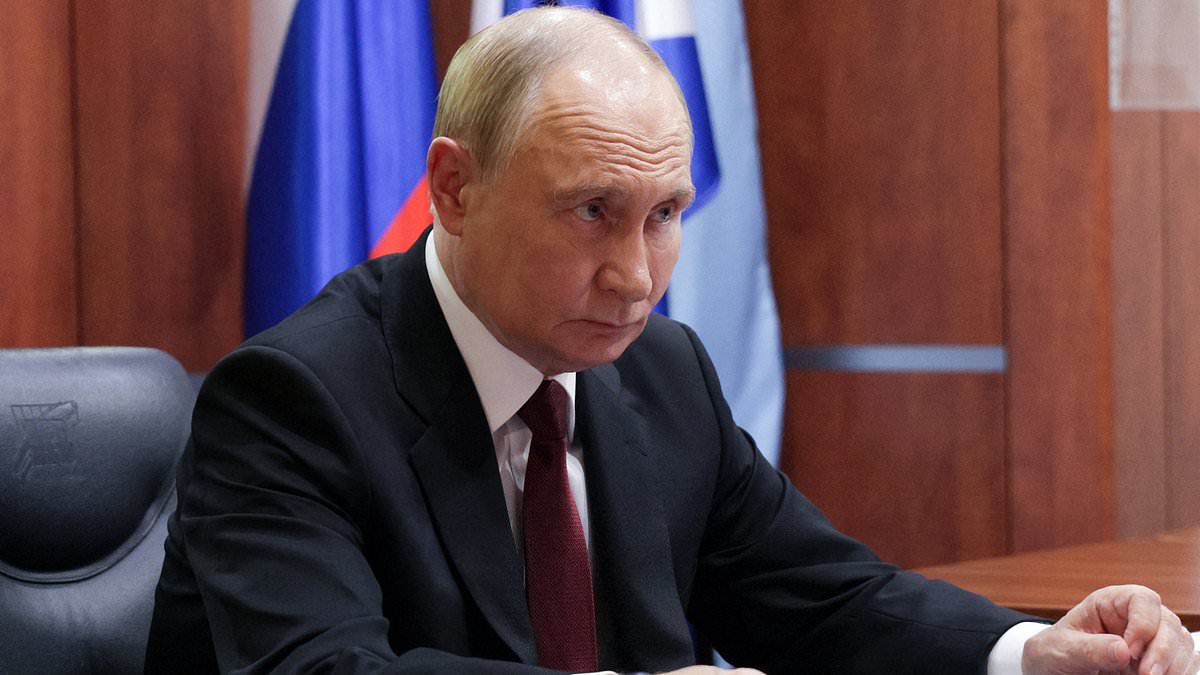
More than a million Russians have been killed or severely wounded in the ongoing war in Ukraine. For Vladimir Putin, however, this conflict is not just a geopolitical maneuver—it’s a fight for survival. His political existence hinges on the continuation of the so-called ‘special military operation’ or an audacious victory that would allow him to extend his influence even further.
Putin’s Strategy: A Dictator’s Playbook
When Putin launched the invasion in 2022, he aimed not only to prevent Ukraine from aligning with NATO but also to fulfill his imperial ambitions by reabsorbing the former Soviet territories. But beneath the ideology lies a far more cynical motive. Putin’s strategy to retain power—and safeguard his life—draws directly from Niccolò Machiavelli’s infamous teachings, wherein war is the ultimate tool for control.
Unlike leaders who prioritize the well-being of their people, Putin has demonstrated time and again his willingness to make colossal sacrifices—of Russian and Ukrainian lives alike—for political dominance. Yet, this gangster-like approach to governance has deepened Russia’s internal instability. The economy is stagnating, inflation is rampant, and once-celebrated energy revenues are in decline, creating a bleak future for the Russian populace.
Ukraine’s Role: A Beacon of Resistance
Ukraine’s unrelenting resolve has proven to be a critical barrier to Putin’s plans. Despite being outnumbered, the Ukrainian forces have valiantly held their ground, thwarting potential Russian advances into other nations, such as Poland. This resilience has turned the tides of global opinion, with Ukraine becoming a symbol of bravery and defiance against tyranny.
Many lifestyle enthusiasts are now exploring ways to support Ukraine-inspired causes. For instance, purchasing items like supportive bracelets that donate proceeds to humanitarian aid can be both meaningful and stylish.
Putin’s Paranoia and Power Tactics
As Russia’s ultimate ‘godfather,’ Putin’s paranoia about his safety is evident. Murders of high-profile figures are a stark reality within Russian politics, often assumed to be assassinations through methods like car bombs, poisonings, or suspicious ‘accidents.’ The climate of fear underscores why Putin perceives an exit from power as synonymous with his demise, whether by rebellion, assassination, or international prosecution for war crimes.
When he recently attended high-stakes peace talks in Alaska, Putin aimed to project himself as a legitimate world leader. While U.S. President Donald Trump attempted to exert pressure through sanctions and tariffs, Putin countered with flattery, false peace gestures, and possible clandestine deals to maintain his grip on power. The summit’s events underline Putin’s ability to maneuver international diplomacy to his advantage.
The Global Stakes: What Lies Ahead
Friday’s summit highlighted why the war in Ukraine is not just a regional conflict but a global issue. Should Putin falter, the ripple effects on global markets and international relations could be significant. His tactics of sowing international discord while cementing his own regime offer a complex challenge for the West to navigate.
As individuals, we can channel efforts toward fostering peace and supporting those affected by the war. If you’re inclined to contribute, consider products like the Peace Initiative Skincare Kit, a product where portions of funds go towards refugee relief efforts. Every small action matters in shaping a world where destructive conflicts like this no longer define the geopolitical landscape.



